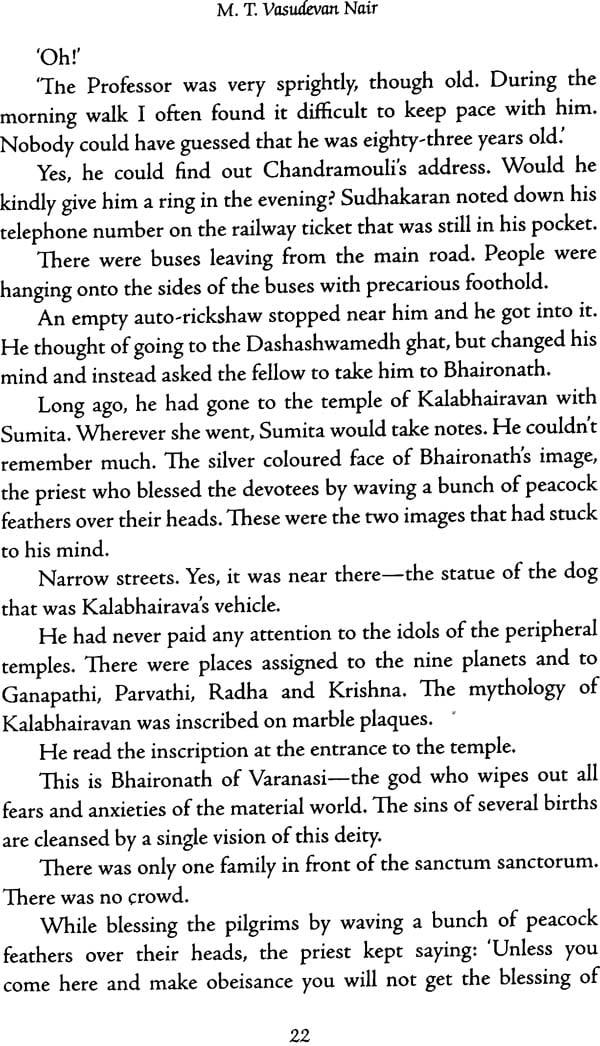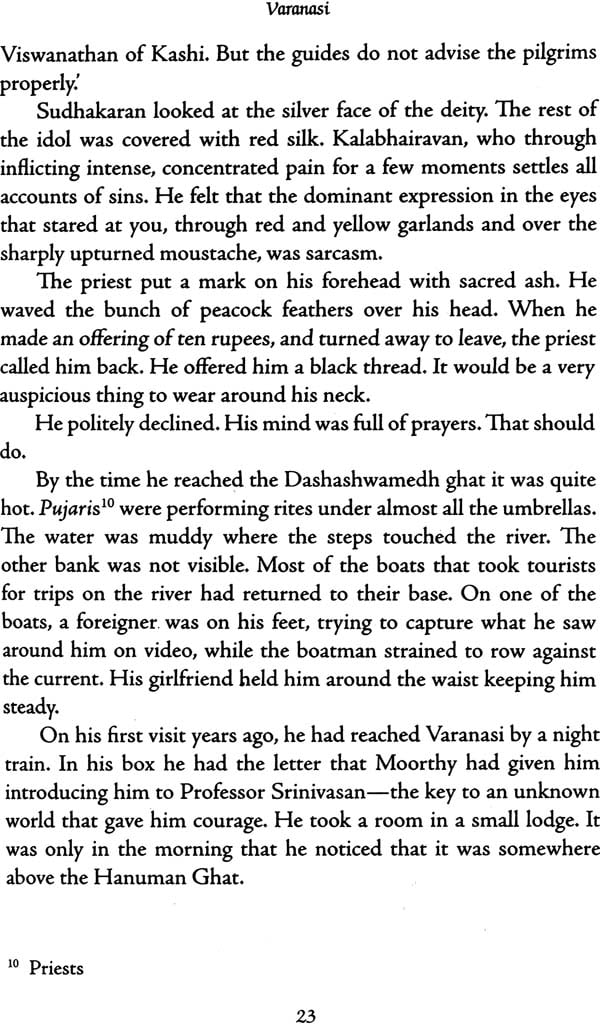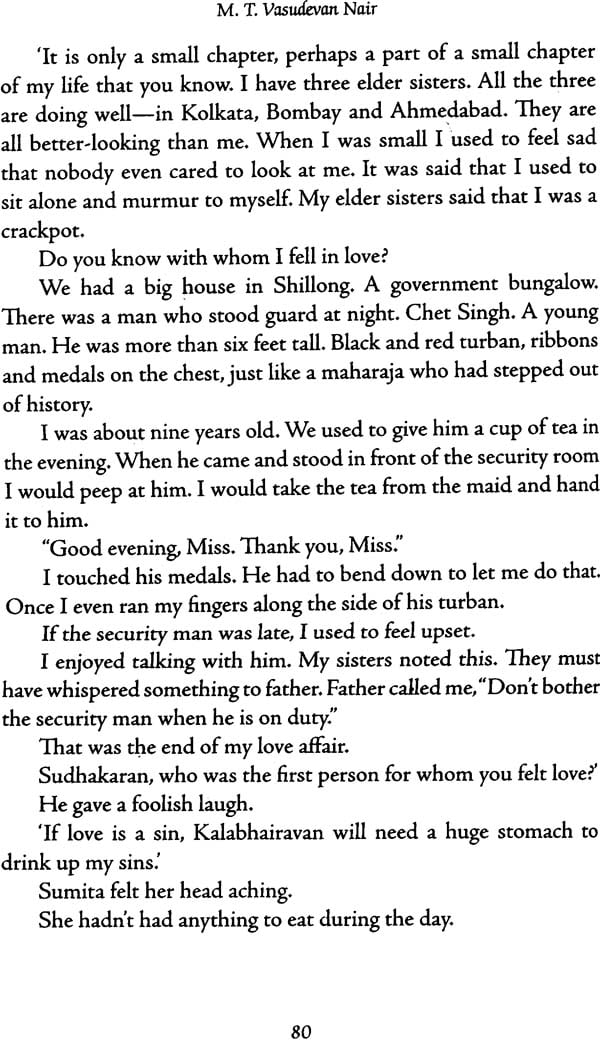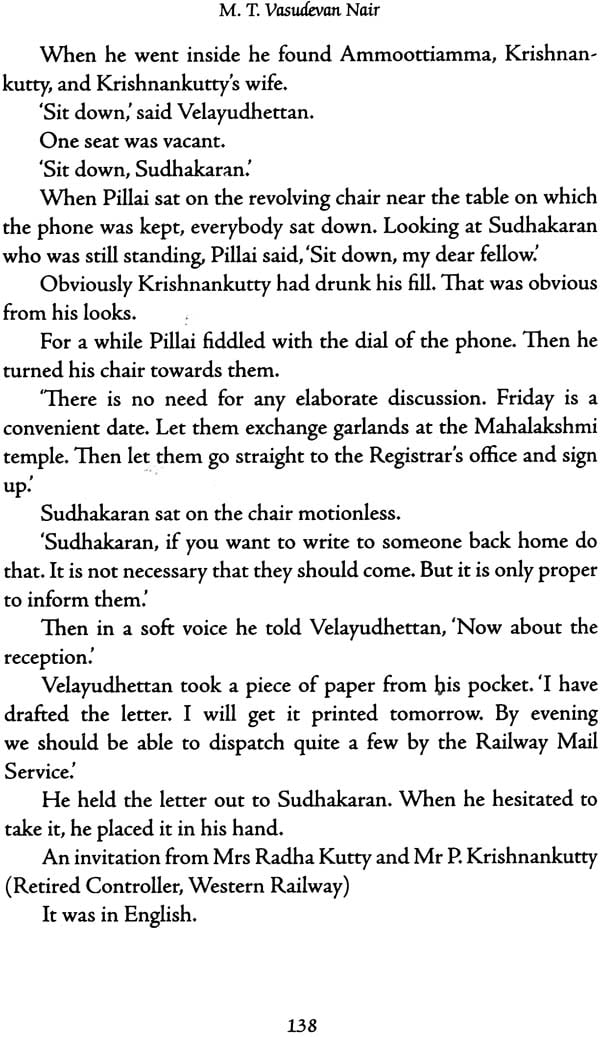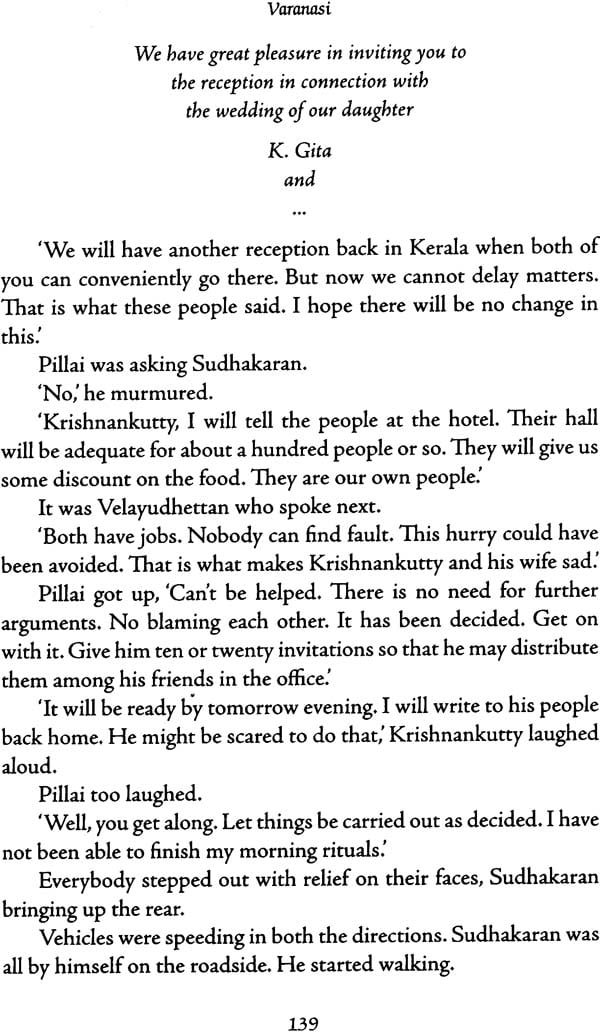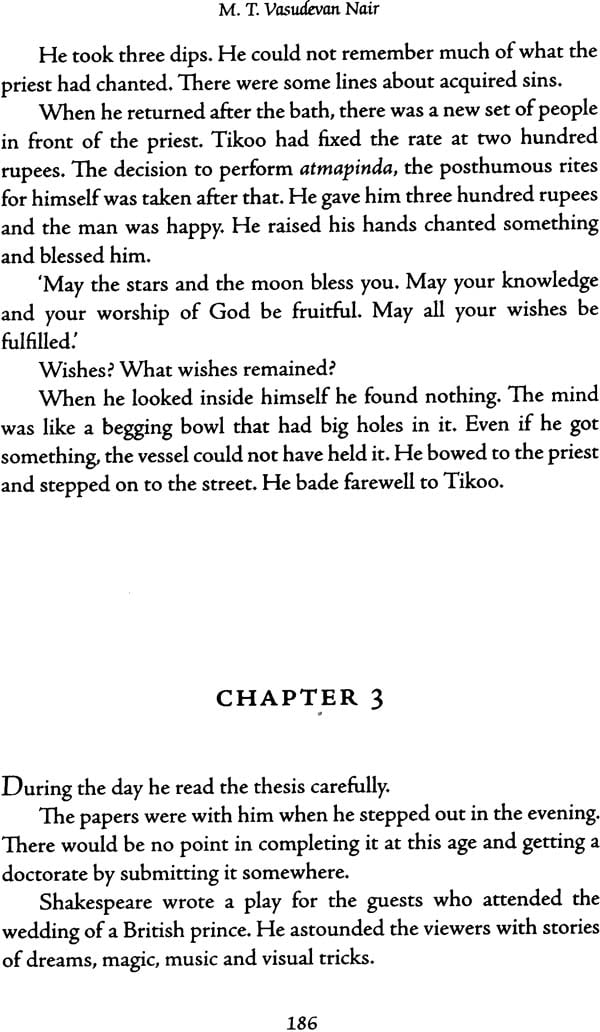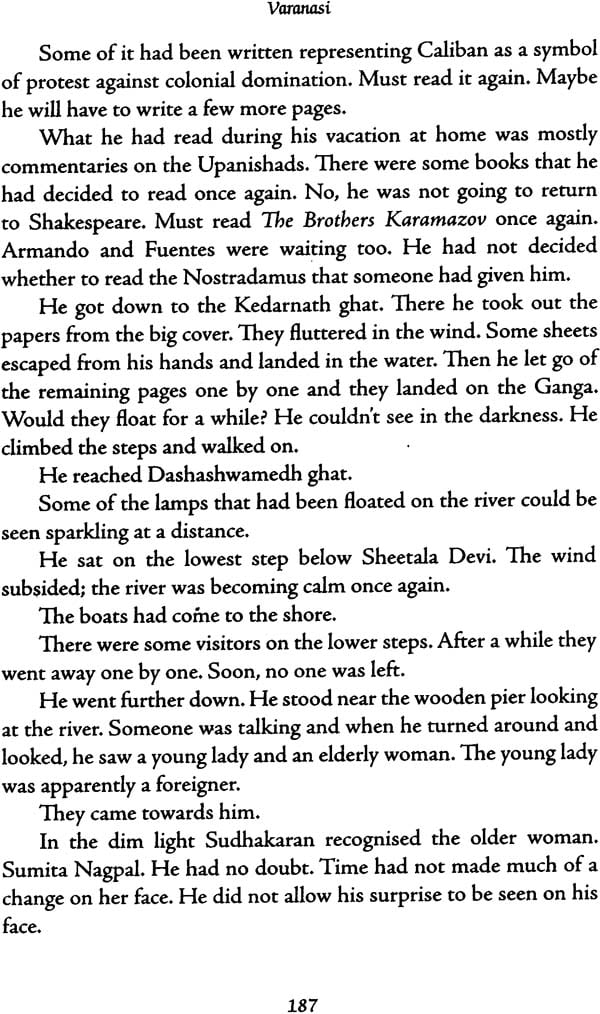
Varanasi
Book Specification
| Item Code: | NAF874 |
| Author: | M.T. Vasudevan Nair and N.Gopalakrishnan |
| Publisher: | Orient Blackswan Pvt. Ltd. |
| Language: | English |
| Edition: | 2014 |
| ISBN: | 9788125051787 |
| Pages: | 198 |
| Cover: | Paperback |
| Other Details | 8.5 inch X 5.5 inch |
| Weight | 230 gm |
Book Description
About the Book
Varanasi, in his trademark austere writing style, is Jnanpith laureate M.T. Vasudevan Nair’s latest novel. Non-linear and set through the protagonist’s reminiscience, this novel is MT’s experiment in style. The narrative is in the unusual alternating person view’, where the narrator smoothly shifts between the first, second and third person. Complemented by as steady stream of paradoves and allusions, legends and parallel realities, this novel makes for an engaging read. Translated by Sahitya Akademi award winner N. Gopalakrishnan, this work masterfully retains the flavour of the original Malayalam.
About the Author
Born in 1933 in the small village of Koodallur, Kerala, M. T. Vasudevan Nair is the best known among his generation of storywriters in Malayalam. A chronicler of life in the matriarchal joint family of Kerala, a milieu he describes with intimacy in novels such as Nalukettu (1959) and Kaalam (1969), he won the Kendriya and Kerala State Sahitya Akademi awards respectively for these two novels. He is also among Kerala's most popular scriptwriters and directors of mainstream cinema. He has won four National Awards for his screenplays. The very first film he wrote, produced and directed, Nirmaalyam (The Floral Offering) won the President's Silver Medal in 1973 and Kadavu (The Ferry) won the Japanese Grand Prix. He was also awarded theJnanpith in 1996.
Apart from short fiction in which he has excelled, Nair has published novels and novellas, travelogues, literary criticism, books for children and a sizeable number of miscellaneous notes, reviews and memoirs. Nair's stories have been translated into several languages in India and abroad. He was associated with the editorship of Matrubhumi periodical publications for over four decades. The Government of India honoured him with the Padmabhushan in 2005.
Born in Kottayam, Kerala, on 1 February 1934, N. Gopalakrishnan is a well- known writer and translator. He has translated P. V. Narasimha Raos Insider (DC Books, 1999) into Malayalam, two novels by M. T. Vasudevan Nair, namely Iruttinte Atmavu (The Soul of Darkness, Tarjuma Publications, 1999) and Vilapayatra (The Funeral Procession, Tarjuma Publications, 1999), E. Vasus Vandematharam (Son of the Nation, Tarjuma Publications, 2007), and K. P. Ramanunni's Sufi Paranja Katha (What the Sufi Said, Rupa, 2000) into English. He also translated Ramakanrh Rath's Odiya Classic Sri Radha into Malayalam in association with poet P. M. Narayanan (Mulberry Publishers, 2002), which received the Kendriya Sahitya Akademi Award in 2007.
Translator’s Introduction
M. T. Vasudevan Nair's creations are essentially visual, though he uses words instead of lines and colours. He provokes the readers' imagination to follow him through his narration seeing for themselves, the people, events and locations that constitute his story. A translation of his work into another language cannot be verbatim. One has to depict in the new language what he shows you around, without of course substantial deviation from the language and style of the original. This is what I have tried to do.
The narration takes the path through Sudhakarans reminiscences while he is on a visit to Varanasi, late in his life, to meet his friend and mentor Professor Srinivasan, who, he learns on arrival, has passed away a few days ago. MT takes the reader through an intimate experience of the ethos and atmosphere of Varanasi, the timeless city of devotion, salvation, lust and tricky commerce.
The narration is not linear and the language pendulates between the past and the present. While some of the narration is done by Sudhakaran, the author himself steps in every now and then to tell us parts of the story in the third person. In a small segment, interestingly, the protagonist addresses himself in the second person.
It is almost a universal practice in India for one not to address one's elders by name. Invariably, the names are prefixed or suffixed with words that mean uncle, elder brother, elder sister and so on. Ertan (elder brother), Ettarhi, Edathi or Akka (elder sister), Ammama or Ammavan (uncle) are common prefixes or suffixes. The large number of such prefixes and suffixes may, at times, demand a moment's reflection to fix identities. But this really does not matter, since the principal characters stand out clearly enough in the story.
While doing the translation I consulted MT many times and he was very helpful. Much to my surprise he was able to tell me the original versions of quotations from English that had been translated into Malayalam in the original. He was kind enough to read through the finished work and I was delighted to receive his approval. I am indeed very grateful to MT.
I am indebted to R. Madhavan Nair and P. M. Narayana for going through my manuscript. I particularly thank K. Venkatachalam for closely scrutinising the manuscript and guiding me through the finishing touches I made to it.
Contents
| Translator’s Intoduction | vii-viii |
| Varanasi | 1-189 |
